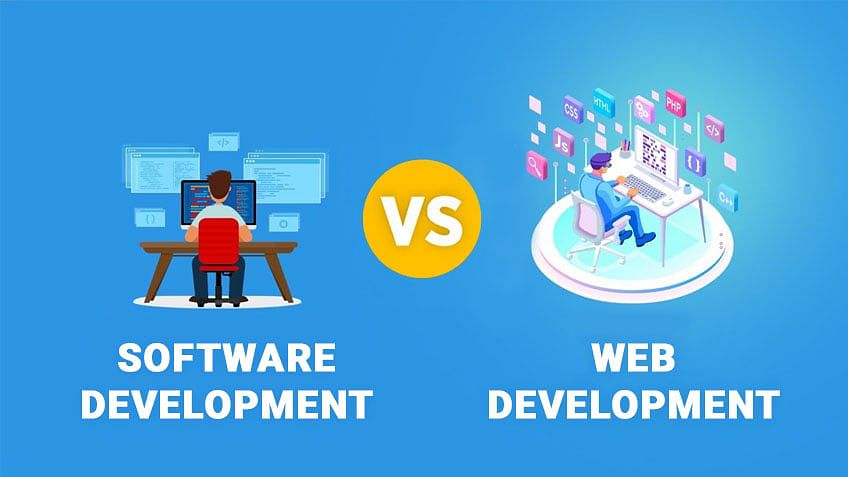Introduction
Mumbai, the financial capital of India, is at the forefront of fintech innovation. The convergence of finance and technology has given rise to fintech solutions that are revolutionising how financial services are delivered and consumed. Business analytics plays a pivotal role in this transformation, offering insights that drive strategic decision-making and operational efficiency. Several FinTech companies in Mumbai sponsor a Business Analyst Course for their business professionals so that they gain the skills necessary to evolve the right business decisions.
This article explores the application of business analytics in the fintech sector in Mumbai, highlighting its impact on the financial landscape.
The Role of Business Analytics in Fintech
Business analytics involves the use of statistical analysis, data mining, predictive modelling, and other advanced techniques to analyse data and extract actionable insights. In the fintech sector, these insights are crucial for enhancing customer experiences, optimising operations, and driving growth.
Key Areas of Application
Customer Insights and Personalisation
Customer Segmentation: Analysing customer data to segment them based on behaviour, preferences, and financial needs, allowing for targeted marketing and personalised services.
Personalised Recommendations: Using predictive analytics to offer personalised financial products and services, enhancing customer satisfaction and loyalty. A Business Analyst Course that is tailored for the financial segment will equip fintech professionals with the ability to evolve effective personalised marketing approaches.
Risk Management
Credit Scoring: Developing advanced credit scoring models that assess the creditworthiness of individuals and businesses more accurately than traditional methods.
Fraud Detection: Implementing machine learning algorithms to detect and prevent fraudulent activities in real-time, ensuring the security of financial transactions.
Operational Efficiency
Process Optimisation: Analysing operational data to identify bottlenecks and inefficiencies, leading to streamlined processes and cost savings.
Predictive Maintenance: Using predictive analytics to foresee and prevent system failures, ensuring uninterrupted service delivery.
Regulatory Compliance
Compliance Monitoring: Leveraging analytics to monitor and ensure adherence to regulatory requirements, reducing the risk of non-compliance penalties.
Reporting Automation: Automating the generation of compliance reports, making the process more efficient and accurate.
The Financial Landscape in Mumbai
Mumbai is home to a diverse financial ecosystem that includes traditional banks, fintech startups, investment firms, and insurance companies. This ecosystem creates a rich environment for the application of business analytics, driven by the need to stay competitive and meet evolving customer expectations. Businesses in Mumbai are increasingly engaging the services of business analysts who are well-versed with the markets and Mumbai and what makes for driving business success in the city. These skills are best acquired by completing a BA Analyst Course that is specifically tailored for the financial segment of Mumbai.
Key Players in Mumbai’s Fintech Sector
Traditional Banks: Banks like HDFC, ICICI, and SBI are integrating fintech solutions to offer digital banking services and improve customer experiences.
Fintech Startups: Companies such as Paytm, Razorpay, and Cred are leading the way in digital payments, lending, and financial management solutions.
Investment Firms: Firms like Zerodha and Groww are leveraging analytics to provide data-driven investment advice and portfolio management.
Insurance Companies: Insurtech startups like PolicyBazaar are using analytics to simplify insurance processes and offer customised insurance products.
Trends Shaping the Fintech Landscape
Digital Payments: The surge in digital payment solutions, driven by UPI (Unified Payments Interface) and mobile wallets, is transforming how transactions are conducted.
Alternative Lending: Fintech companies are offering alternative lending solutions, leveraging analytics to assess credit risk and provide loans to underserved segments.
Blockchain and Cryptocurrencies: The adoption of blockchain technology and cryptocurrencies is opening new avenues for secure and transparent financial transactions.
Robo-Advisors: Automated investment platforms are using analytics to provide personalised investment advice and portfolio management.
Challenges and Opportunities
Challenges
Data Privacy and Security: Ensuring the privacy and security of sensitive financial data is a major challenge, requiring robust cybersecurity measures.
Regulatory Compliance: Navigating the complex regulatory landscape in India can be challenging, necessitating continuous monitoring and adaptation.
Integration with Legacy Systems: Integrating new fintech solutions with existing legacy systems can be difficult and resource-intensive.
Opportunities
Financial Inclusion: Fintech solutions powered by analytics can help extend financial services to unbanked and underbanked populations, promoting financial inclusion.
Enhanced Customer Experience: By leveraging customer insights, fintech companies can offer superior and personalised customer experiences. A BA Analyst Course in Mumbai will equip fintech professionals with skills that are most relevant to the markets of Mumbai.
Innovation and Growth: Continuous innovation in fintech solutions driven by analytics can lead to new business models and revenue streams.
Case Study: A Mumbai-Based Fintech Company
A Mumbai-based fintech startup, specialising in digital lending, leveraged business analytics to transform its operations. By implementing advanced credit scoring models and fraud detection algorithms, the company achieved the following:
- Improved Credit Assessment: The analytics-driven credit scoring model reduced default rates by 20%, enabling the company to offer competitive interest rates.
- Enhanced Fraud Detection: Real-time fraud detection algorithms prevented potential losses, increasing customer trust and confidence.
- Operational Efficiency: Process optimisation through analytics led to a 30% reduction in loan processing time, improving customer satisfaction.
Conclusion
Business analytics is a powerful tool that is reshaping the fintech landscape in Mumbai. By harnessing the power of data, fintech companies can gain valuable insights, optimise operations, and deliver superior financial services. As the fintech sector in Mumbai continues to evolve, the adoption of business analytics expertise of professionals who have the learning from a domain-specific Business Analysis Course will be crucial for businesses to stay competitive and drive innovation in Mumbai’s dynamic financial ecosystem.
Business name: ExcelR- Data Science, Data Analytics, Business Analytics Course Training Mumbai
Address: 304, 3rd Floor, Pratibha Building. Three Petrol pump, Lal Bahadur Shastri Rd, opposite Manas Tower, Pakhdi, Thane West, Thane, Maharashtra 400602
Phone: 09108238354,
Email: enquiry@excelr.com

 The Beauty and Benefits of Lab Created Diamond Earrings
The Beauty and Benefits of Lab Created Diamond Earrings  The Beauty and Meaning Behind the Toi et Moi Ring Diamonds
The Beauty and Meaning Behind the Toi et Moi Ring Diamonds  The Impact of Blood Diamonds: Understanding the Global Issue
The Impact of Blood Diamonds: Understanding the Global Issue  Novita Lab Diamonds: Redefining Luxury with Ethical, Sustainable, and Affordable Diamonds
Novita Lab Diamonds: Redefining Luxury with Ethical, Sustainable, and Affordable Diamonds  IGI vs GIA: Understanding the Difference in Diamond Grading
IGI vs GIA: Understanding the Difference in Diamond Grading  Lab Diamonds in Kuala Lumpur: A Growing Trend in the Jewelry Industry
Lab Diamonds in Kuala Lumpur: A Growing Trend in the Jewelry Industry  Platinum vs Gold Lab Grown Diamond Rings: Which is Right for You?
Platinum vs Gold Lab Grown Diamond Rings: Which is Right for You?  The Rise Made Diamonds in Barcelona: A Sustainable Luxury Revolution
The Rise Made Diamonds in Barcelona: A Sustainable Luxury Revolution  Novita Secret Platinum Formula: Unlocking the Secret to Radiant Skin
Novita Secret Platinum Formula: Unlocking the Secret to Radiant Skin 









